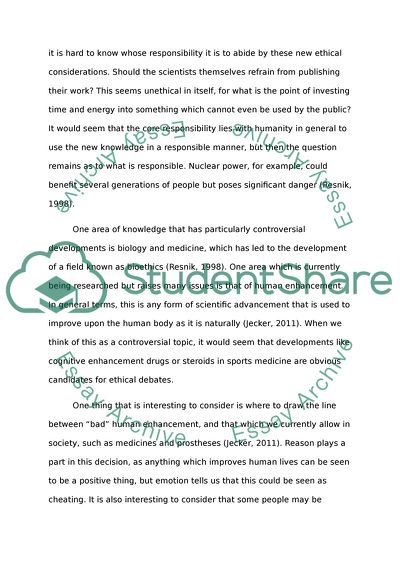Cite this document
(Theory of Knowledge Essay Example | Topics and Well Written Essays - 1500 words, n.d.)
Theory of Knowledge Essay Example | Topics and Well Written Essays - 1500 words. https://studentshare.org/philosophy/1795237-the-possession-of-knowledge-carries-an-ethical-responsibility-evaluate-this-claim
Theory of Knowledge Essay Example | Topics and Well Written Essays - 1500 words. https://studentshare.org/philosophy/1795237-the-possession-of-knowledge-carries-an-ethical-responsibility-evaluate-this-claim
(Theory of Knowledge Essay Example | Topics and Well Written Essays - 1500 Words)
Theory of Knowledge Essay Example | Topics and Well Written Essays - 1500 Words. https://studentshare.org/philosophy/1795237-the-possession-of-knowledge-carries-an-ethical-responsibility-evaluate-this-claim.
Theory of Knowledge Essay Example | Topics and Well Written Essays - 1500 Words. https://studentshare.org/philosophy/1795237-the-possession-of-knowledge-carries-an-ethical-responsibility-evaluate-this-claim.
“Theory of Knowledge Essay Example | Topics and Well Written Essays - 1500 Words”. https://studentshare.org/philosophy/1795237-the-possession-of-knowledge-carries-an-ethical-responsibility-evaluate-this-claim.


